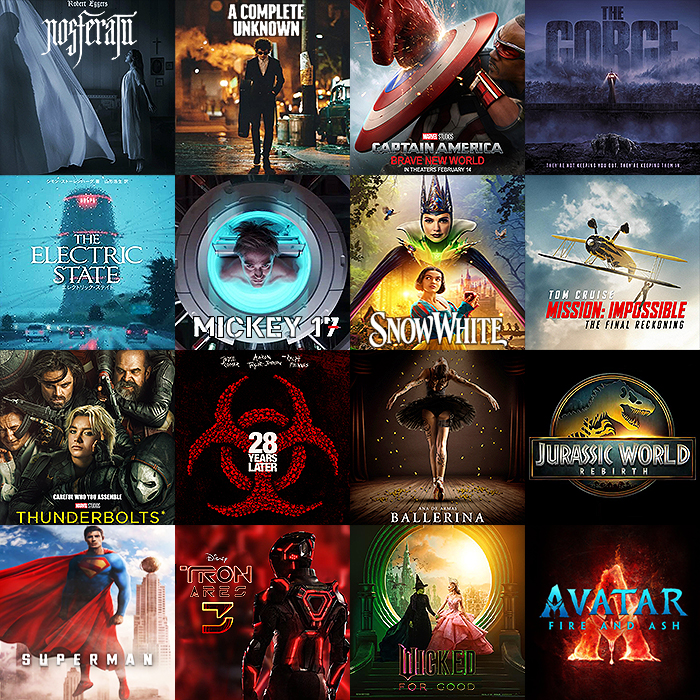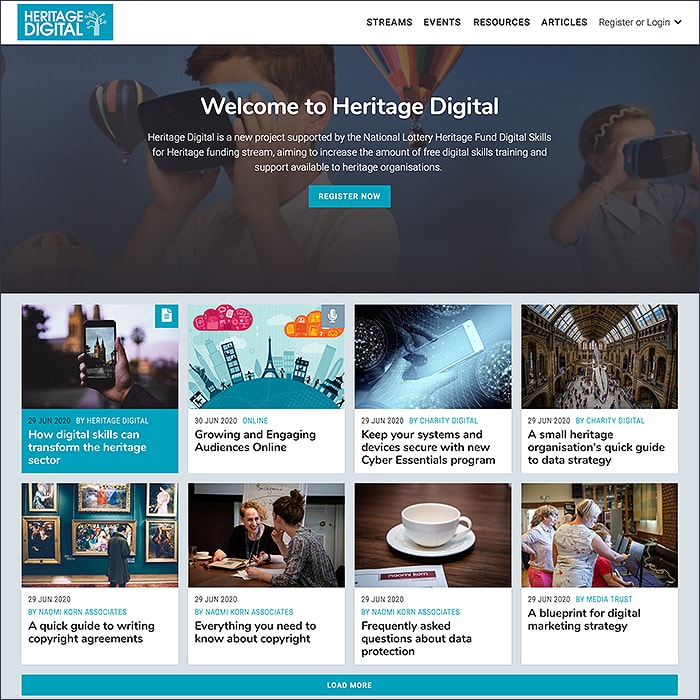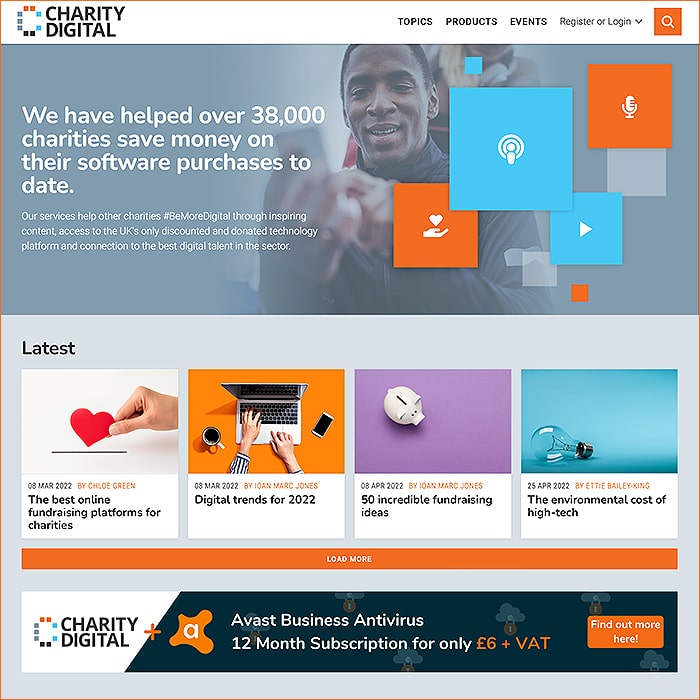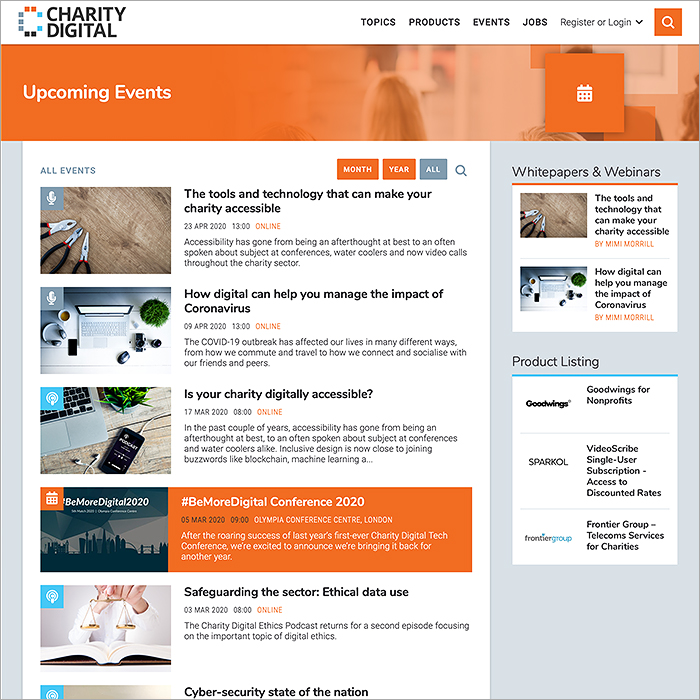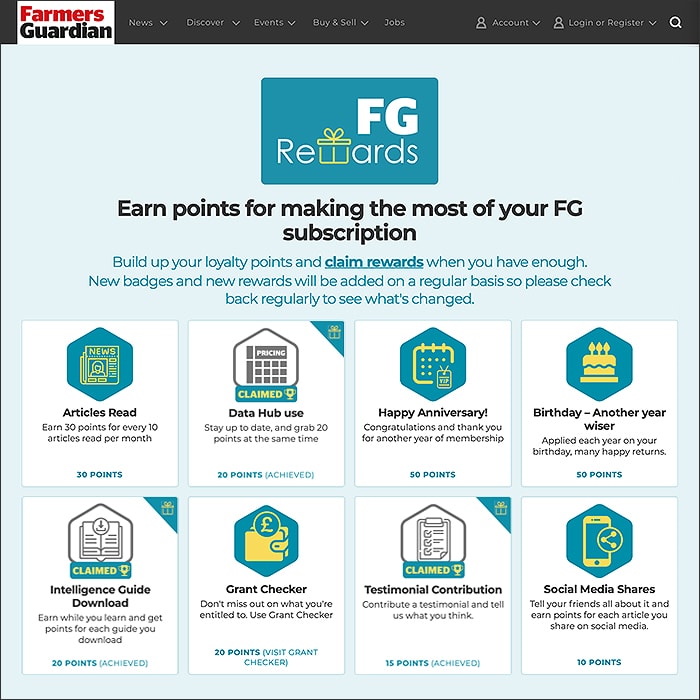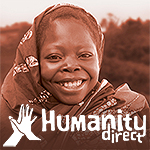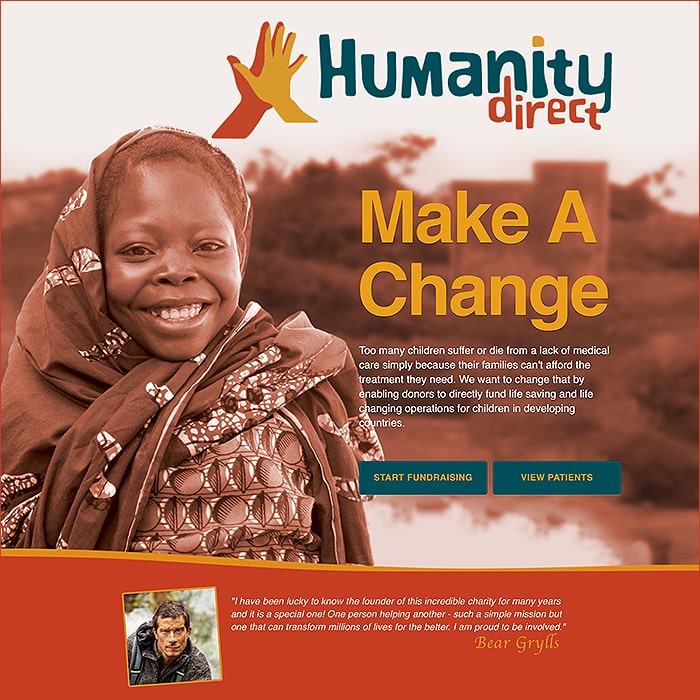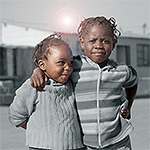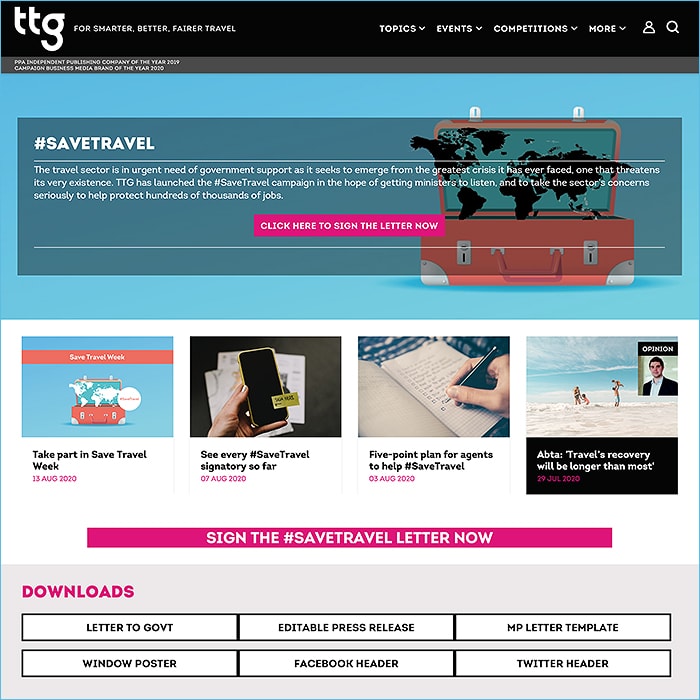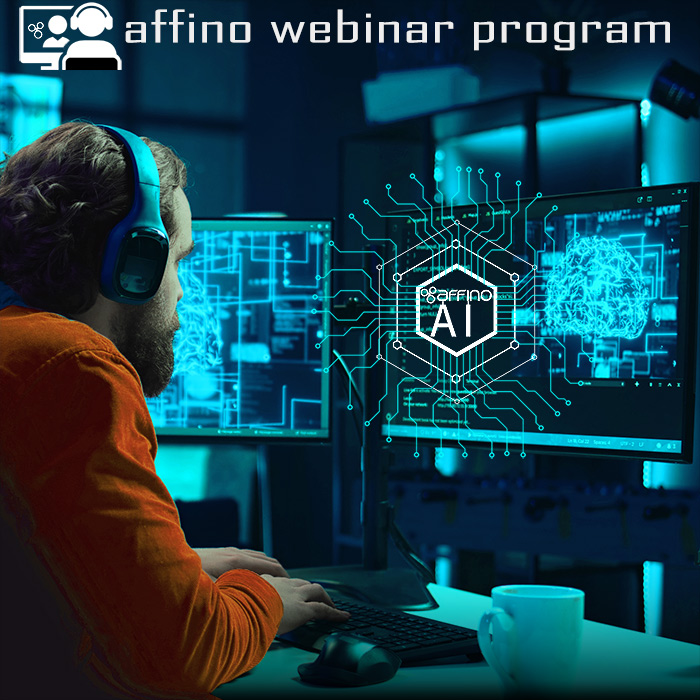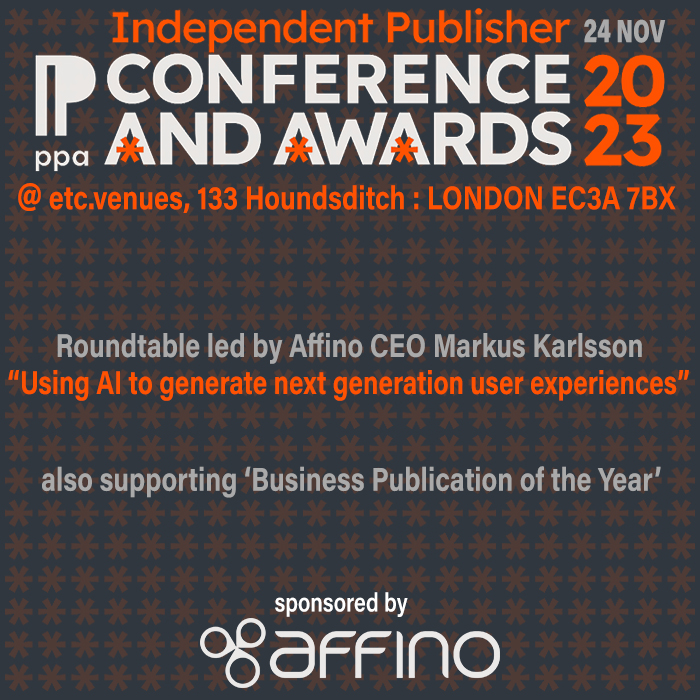Humanity Direct's Mission as Vital and Impactful as Ever as it celebrates 5 Years Running on Affino
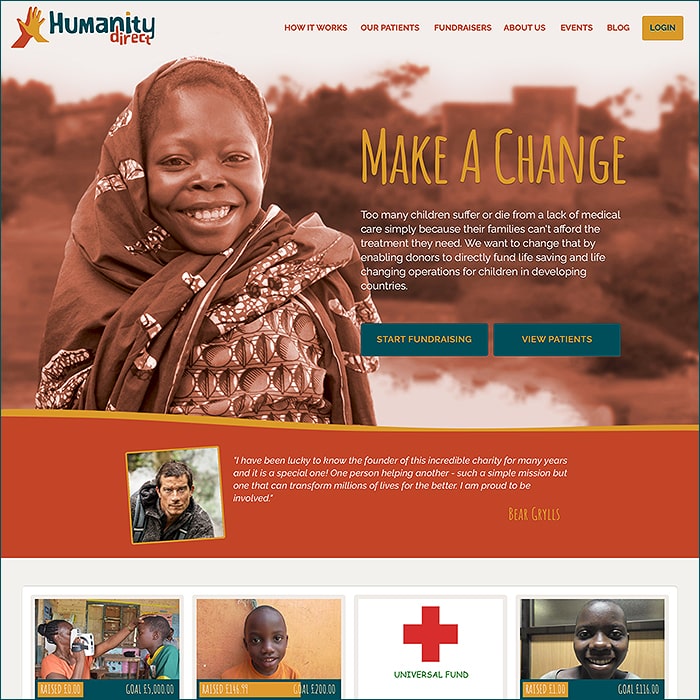
Humanity Direct is Affino’s chosen and preferred Charity Partner, and 2020 - despite all its challenges, marks the 5 Year Anniversary of our collaboration. On such an auspicious occasion we felt this would be an ideal time to catch up with our Humanity Direct colleagues and review their ongoing mission and evolution and celebrate what we had achieved together.
Direct Person to Person Funding
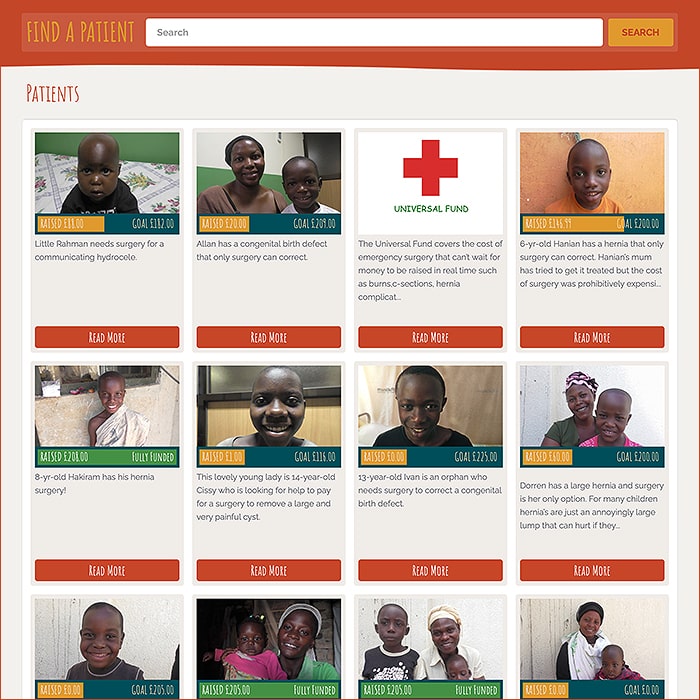
What is different about Humanity Direct is that the Principal directors fully fund the charity overheads. So that when you raise funds or donate to a patient, campaign or cause via Humanity Direct - all those monies go directly to the end beneficiaries - not a penny gets siphoned off towards any of the incidental costs. So when you donate to Humanity Direct - you're not funding towards a final outcome, but for that whole outcome - with zero waste.
Humanity Direct's principles are very much defined by efficiency, productivity, scale of economies, hands-on control and a properly validated network of trusted partners - which includes hospitals and medical staff, aid foundations, volunteers, local activists and local authorities. Humanity Direct has funded over 2,000 individual operations and a similar number of pairs of glasses - with 25,000 eye-tests carried out to date.
As is currently the way nowadays, we had a virtual sit-down with 3 of the principals of Humanity Direct (HD) - Nick Swift, Marc Shalam and Rachel Bhatia - courtesy of Zoom of course. The idea was to review where we were at 5 years down the road, see what lessons have been learned collectively and what tips could be passed onto other charities and Affino users - particularly as regards operating under the shadow of the current pandemic.
We started by discussing the evolution of Humanity Direct's Charitable Works - what has stayed the same - and what has evolved significantly. We discussed goals, milestones and successes along the way and then how that had been enabled and empowered by Affino and to what degree.
The essential remit of Humanity Direct remains very much the same as when it started - in terms of direct funding of operations in developing territories where no social healthcare system or other means of funding exists - mostly based in East Africa, but also with projects in China and Venezuela.
Over time the Humanity Direct team have realised how important it was to give people the right start in life - to avoid more significant challenges further along the line. So the emphasis has switched from helping all age groups to a focus on children, and providing them with essential life-changing operations, often quite minor in nature, but very significant in their impact.
The Vision Quest Campaign
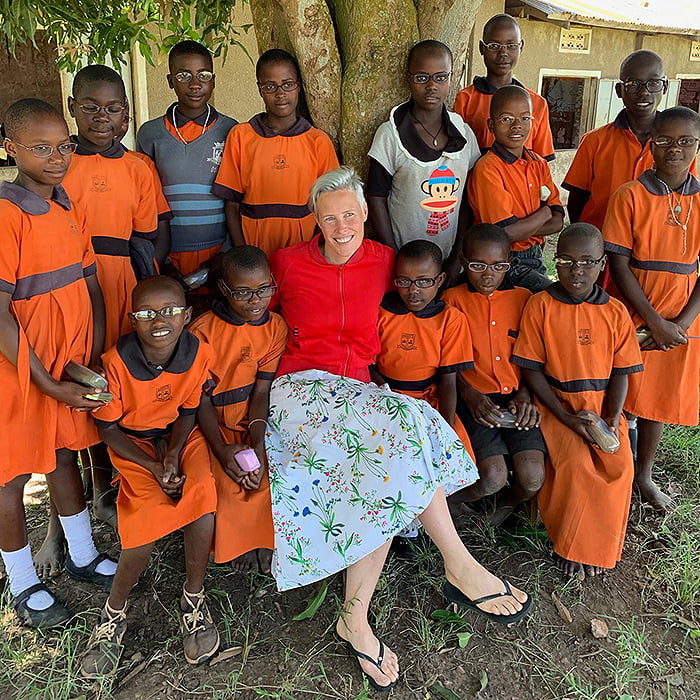
Humanity Direct has evolved along very serendipitous lines - often triggered by one of the major fundraising running events HD coordinate and participate in each year.
Their three key events being the Amersham, Chiltern and Tring Ultra Marathons - run at different times during the year. Those Events are the principal means of fundraising both for individual direct operations, as well as building up a larger Universal Fund for more wide-ranging special projects.
A serendipitous meeting at one of HD's Ultra Marathon events brought them into contact with optician Will Luff of Glassesonspec - who was already making bespoke glasses as part of his own charitable works. Humanity Direct, through their many years of coordinating operations, had discovered that a significant part of operations that they were funding were to do with eyesight - and that there was a lack of corrective eye-glasses for those target groups they were dealing with.
For children with a High Level of short-sightedness, i.e. in excess of -4, they were essentially getting High Myopia Blindness where the brain shuts down that part of the visual cortex where the person is unable to 'focus' their vision for extended periods. When you combined that with large class sizes of around 100 pupils or more - it became quite obvious how many students were falling behind, or dropping out even, because of their inability to see what was written on the classroom blackboard. The lack of availability of eye tests and prescription glasses was resulting in several lives being significantly handicapped from very early on.
A further series of serendipitous meetings brought Humanity Direct into contact with a local Ugandan activist - one Dickson Kasozi - who already had an outreach program, which had direct access to two major school districts and healthcare networks in the cities of Masaka and Mubende, to the west and south-west of Uganda's capital city Kampala.
So the project connected Nick, Katrina, Marc and Rachel of Humanity Direct with Will Luff of Glassesonspec and Dickson Kasozi who in effect coordinated the efforts locally and oversaw more than 25,000 eye-tests for nearly all Primary and Secondary School attendees in the Masaka and Mubende districts.
Dickson organises the tests and shares the individual readings / prescriptions with Will, who then produces those glasses in his own domestic workshop in batches of circa 500 at a time. The glasses are then presented by Nick, Katrina and Marc to the pupils in Uganda. The hands-on approach is essential to ensuring that the glasses get through to the end-beneficiaries, while that process has also helped to raise exposure and publicity for the program.
As mentioned - more than 25,000 tests have been conducted to date and near 2,000 bespoke glasses supplied thus far with 400 pairs on standby currently waiting for Ugandan Covid Restrictions to lift.
Evolved Virtual-Run Fundraising
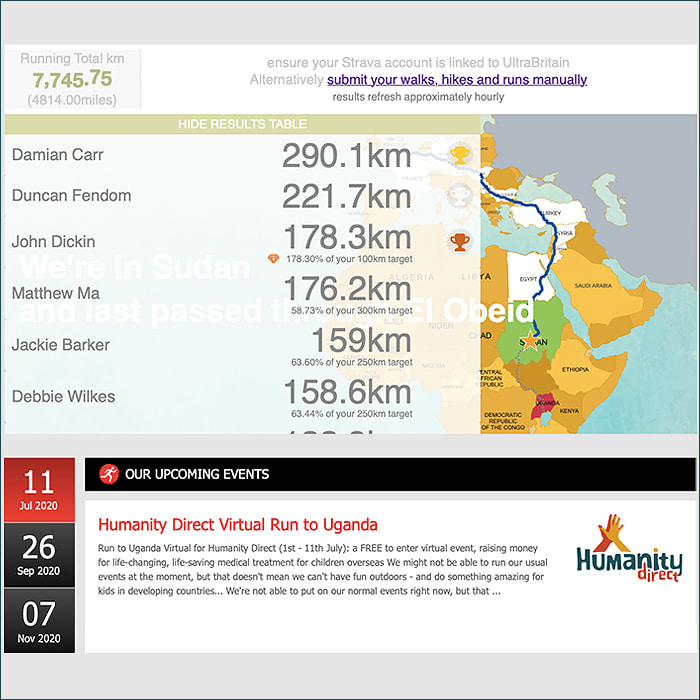
Because of evolving Covid-19 restrictions, a number of key Humanity Direct Events have had to have been cancelled, including this year's Chiltern and Tring Ultra events. Fortunately though, through HD's outreach programmes - where Nick and Marc frequently participate in pre-run motivational talks - they are usually only one step away from making another significant networking introduction - which has brought them into contact with leading luminaries of the likes of Bear Grylls and Neil Thubron.
Neil Thubron is one of the world's most successful and celebrated extreme-run athletes - who has recorded a win in the Yukon Ultra, a 300km winter running race in Canada, and has competed in the top tier of the 156 mile Marathon de Sables, and 103 mile Mont Blanc Ultra. Nick and Marc connected with Neil at one of their pre-run talks - which led to an alliance being formed between Humanity Direct, Neil's XNRG.co.uk organisation, UltraBritain.com the running events organisers, and of course the Strava Run and Cycle route tracking and social networking app.
As coordinated localised events were being cancelled because of Covid-19 lockdown, Humanity Direct needed another means to organise fundraising events to support their activities. And so the Virtual-Run solution presented itself - in tandem with the aforementioned partners.
The way the event would work is that it would be set up as an extended / ultra distance event which would range over 10 days. The aim was to cover 6,318 accumulated miles - which happened to be the distance from the most recently cancelled Chiltern Ultra event to Uganda's capital city Kampala. Participants would have 10 days to jointly accumulate that mileage by any honest means possible - i.e. a number of runs and/or walks - which were to be tracked and recorded / shared by the Strava app. As participants could run or walk anywhere within their locality - it made for a much larger target audience who could participate anywhere in the world they wanted to.
Humanity Direct very quickly realised the intrinsically competitive nature of this event - which through Strava integration and connection with Instagram - afforded a lot of social media traffic and publicity. So a transparent leaderboard was set up to feature those who recorded the most mileage - which generated further competition, social media interactions and publicity.
The end result of the first Chiltern to Kampala Virtual-Run was the most successful event to date for Humanity Direct - with the target distance covered with two days to spare and the run going on to reach 7,746 miles, which amounted to an additional victory lap around Lake Victoria, and raised more than £10,000. What was further unique about this event was that it occurred when several children were at home on Covid-19 lockdown - and they were delighted to be able to participate in an event where they were raising funds for children of their own age.
Some individuals recorded distances of over 300km, and this is undoubtedly a format that Humanity Direct will increasingly look towards, particularly in these restrictive times - and where the overheads proved to be far lower than for equivalent actual locally organised events. Those will for sure continue again once restrictions are lifted, because of the camaraderie aspect, but I expect we will likely see one to two Virtual-Run events also even when lockdown restrictions are lifted. The Virtual-Runs fit Humanity Direct's remit exactly, and are indeed the least cost / best cost route with the greatest impact potential as they can also target the international running community which opens up even more possibilities.
Leveraging Affino - Experience and Expertise
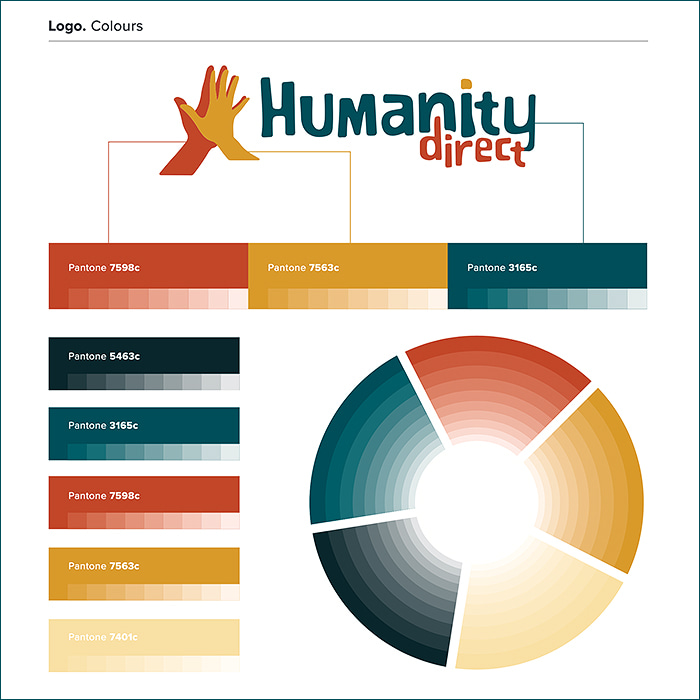
Running a charity can be an extreme challenge at the best of times - there are forever new obstacles arising which need to be dealt with - and for a far-reaching organisation like Humanity Direct - they probably have a few more plates to juggle than the typical charity. Also they're a very lean and efficient operation all-in-all with the four principal partners - Nick, Katrina, Marc, and Rachel carrying the vast majority of the weight.
Humanity Direct still stand strong in their resolve to make that change for the better and to keep making exponential impact from their good works, inspite of all the recent pandemic induced turmoil. Nick cites patience and perseverance being essential to the ongoing success of the charity. In many ways Humanity Direct have been very lucky with their natural selection of trusted partners where everyone is now a firm friend working towards shared goals, and with the same central vision.
Trusted Partners - Humanity Direct and Affino
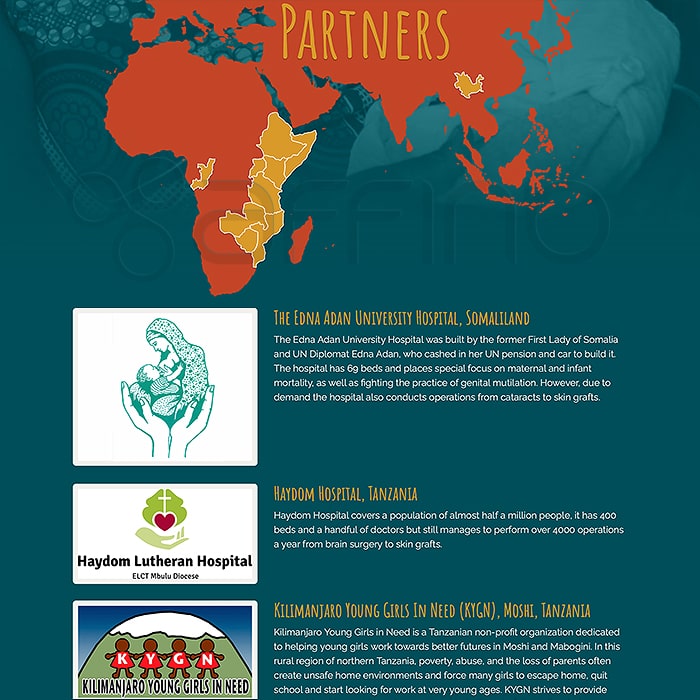
There's obviously a need to keep an eye on finances, overheads and efficiencies of conglomeration and scale of economies. It's only really by working closely together within a fully trustworthy network of relationships that all this is long-term possible and tenable. That of course includes Affino too - which is very much a trusted partner on that side of the operation - and ensures continuity - by providing as robust and reliable a service as possible - such that the digital element is a fully consistently reliable component within the operation. The Humanity Direct site has been updated and upgraded more than 50 times over the last 5 years - and the end-result has been an incredibly stable and tranquil online experience for the HD team.
Nick cites that it is essential to ask questions of the Affino team at the start of a new idea or scheme germinating - as Affino can greatly help streamline the process into the most efficient and effective solution. The HD team found that Affino often had solutions in place for many of their more complex problems and requirements. Forgetting to ask Affino could result in an overly complicated approach which never becomes fully satisfactory or sufficiently effective. Affino can certainly be very instrumental in the creative problem-solving aspects of functional challenges.
Nick and his partners at Humanity Direct are delighted with their current standing and ongoing success and recognise that Affino has played a part too in empowering them to do what needs to be done. Nick reaffirms that:
"We're Very, Very, Very, Very Happy with our Branding and Website and really appreciate how it just all works super smoothly and efficiently all of the time".
The advice for charities is best summed up as choosing your partners carefully, keep the faith and persevere, find innovative and cost-effective ways to evolve your outreach, and don't be afraid to ask!

Did you find this content useful?
Thank you for your input
Thank you for your feedback
Upcoming and Former Events
Affino Innovation Briefing 2024
Webinar - Introduction to Affino's Expert AI Solutions - Session #2
Webinar - Introduction to Affino's Expert AI Solutions - Session #1
PPA Independent Publisher Conference and Awards 2023
Meetings:
Google Meet and Zoom
Venue:
Soho House, Soho Works +
Registered Office:
55 Bathurst Mews
London, UK
W2 2SB
© Affino 2024



